Production Revolution Brings German Giant to Australia
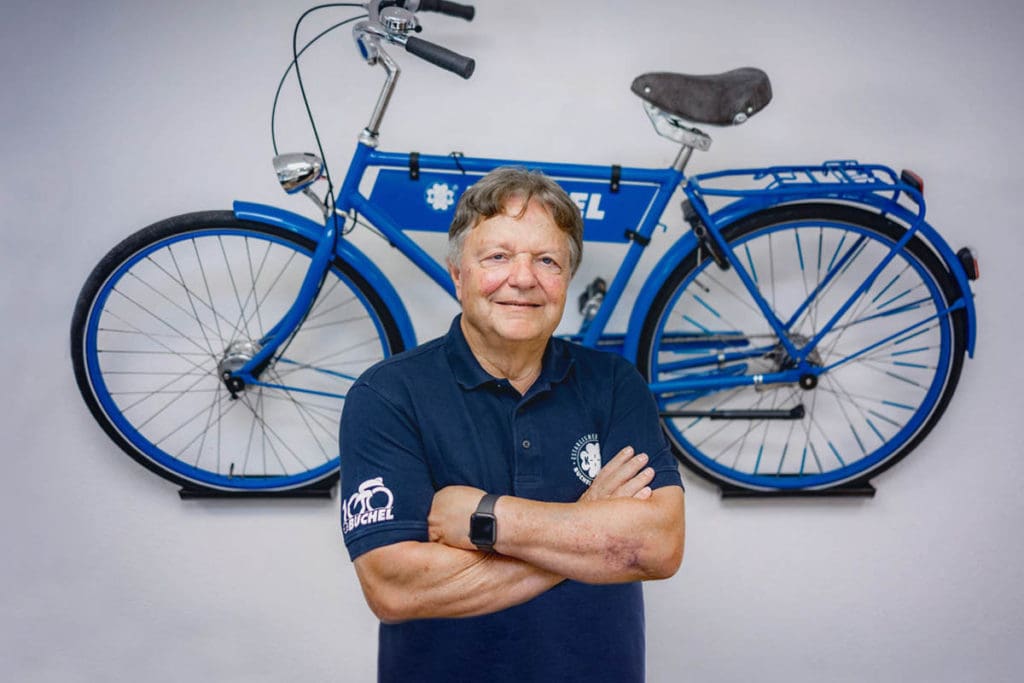
~ Sponsored Content ~
Few Australian cyclists will know the name but an increasing number will be riding bikes with Büchel parts and accessories.
For the past 102 years, the family-owned German company has done a thriving B2B trade providing various parts to bicycle manufacturers, including a growing number of brands prominent in Australia.
Cube, Kalkhoff and Canyon are among the multitude of brands infiltrating the Australian market with an assortment of Büchel rims, spokes, mudguards, racks, saddles, grips and other equipment.
A century into its existence, Büchel decided to branch out into the aftermarket sector and now it has set its sight on Australia.
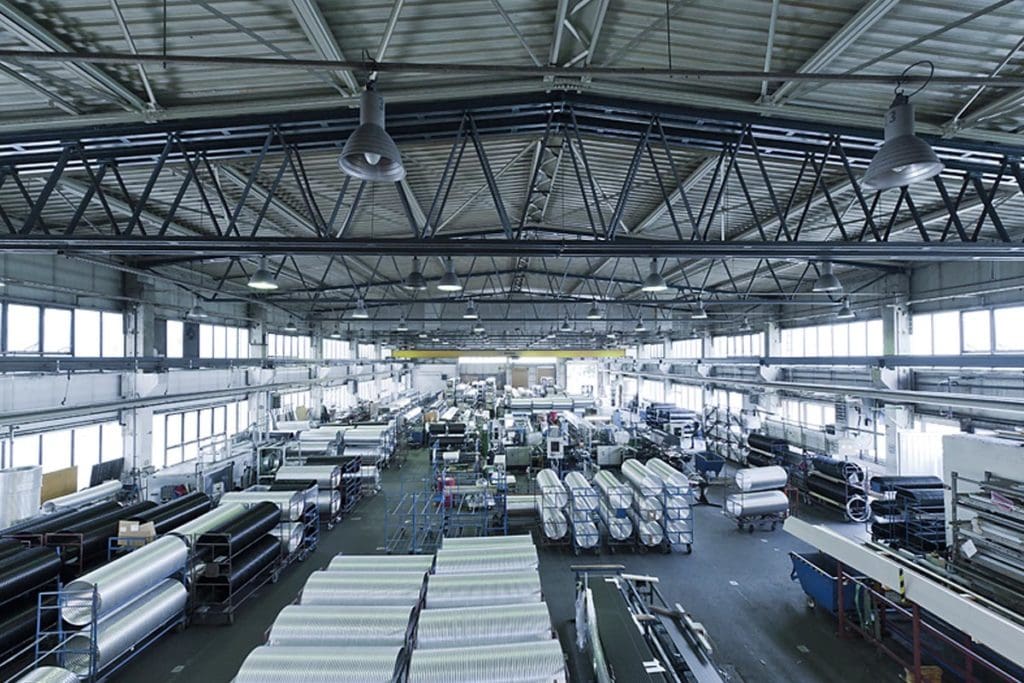
CEO Erhard Büchel said the company is on the lookout for an Australian distributor and retailers to help introduce Australians to the brand and its German designed and manufactured products.
“Büchel recently foreshadowed a number of a market-leading products to help spearhead its push into a store near you.”
He said the change in tack sprung from a combination of enhanced manufacturing processes – courtesy of the company’s new automated plants in Germany – and a desire to diversify its market.
Automated production has nullified many of the cost advantages for Asian manufacturers, while giving Büchel advantages in quality control and quicker response times to market demands by bringing production back within its own factories in Germany.
While the company already has an extensive catalogue of parts and accessories, developed over decades of working with household brands, Büchel recently foreshadowed a number of a market-leading products to help spearhead its push into a store near you.
It used Eurobike 2022 in July to unveil LED lights and handbar grips being prepared for release onto the market – and at prices set to give the market a further shake-up.
They included the first rechargeable battery-powered taillight that is not only fitted with a motion sensor – to indicate when the bike is braking – but can also detect more sudden braking and switch to a brighter setting to show an emergency stop.
The Edge rear light was developed in collaboration with the Fraunhofer Institute in Dresden, the world’s leading applied research organisation. Motion detectors mean it does not need to be connected to the bike’s braking system and its emergency stop setting is several times brighter than its taillight and standard braking settings. That ensures it is the first brake light to meet new German safety and production standards.
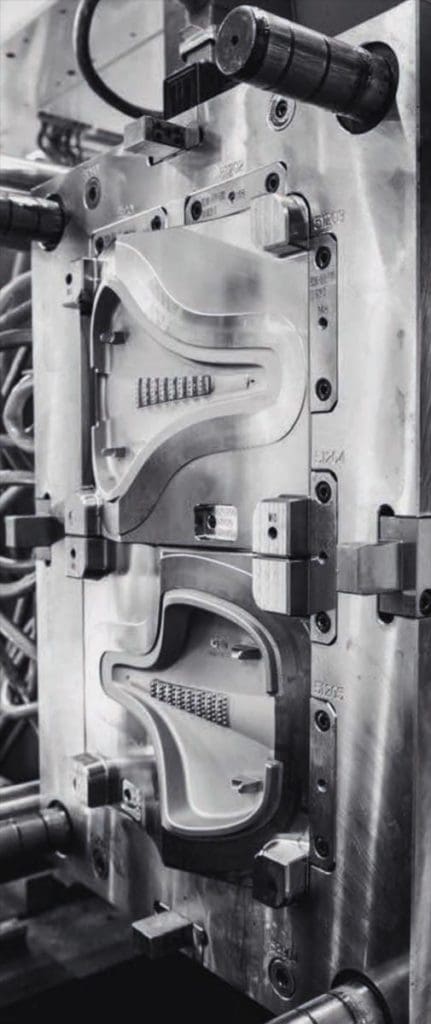
The Edge is earmarked to be sold by Cube as an optional extra with its bikes, under its own house brand.
It featured at Büchel’s Eurobike display alongside two new LED front lights developed with e-bikes in mind.
The Optical 150 FL’s maximum output of 150 lux will put it among the most powerful LED bike lights on the market when it is released soon, but for a price well below comparable products.
With a level of illumination associated more with a motorbike than an e-bike, the Optical 150 has high and low-beam settings.
“Büchel has been producing bike lights for the past 40 years, and now commands 60% of the bicycle light market in Germany.”
Büchel also has an innovative mounting system that allows the Optical 150 to be fitted above or below the handlebars – or in front of the head stem – to keep it clear of displays increasingly incorporated into e-bike cockpits … or simply to achieve desired aesthetics.
If 150 lux or the Optical 150’s estimated price tag of €150 (A$233) still seems excessive to your needs, Büchels also launched the Ahead 35 – one of the products it has developed in collaboration with Cube.
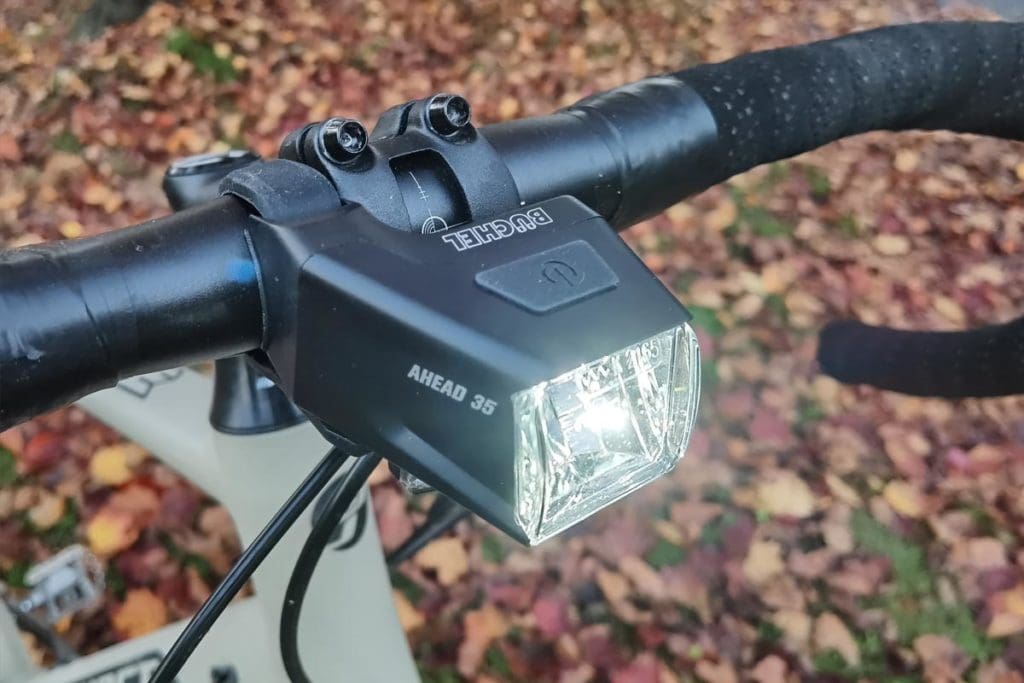
With 35 lux and a rechargeable lithium battery life of up to five hours, it also has a patented mounting system to keep the light well positioned but discrete and out of the way.
Büchel has been producing bike lights for the past 40 years, and now commands 60% of the bicycle light market in Germany.
Its production of reflectors stretches back even further, to 1958, and was recently revolutionised by its creation of its Sekuclips – small reflective strips that clips to the outer extremities of each spoke.
During daylight they are more inconspicuous than standard spoke-mounted reflectors, so they don’t detract from a bike’s aesthetics. But when ridden at night, they create a bright ring around the wheel’s full circumference and are highly visible from every angle. They can be seen from twice the distance of standard reflectors and are more readily identifiable as a bicycle.
“We’ve been producing them for about eight years and sell about 1.5 to two million packs of them each year,” Erhard said. A standard pack of Sekuclips contains 36 reflectors; enough for one wheel under German regulations which require a reflect for each spoke. However, they are equally effective with one Sekuclip for every second spoke.
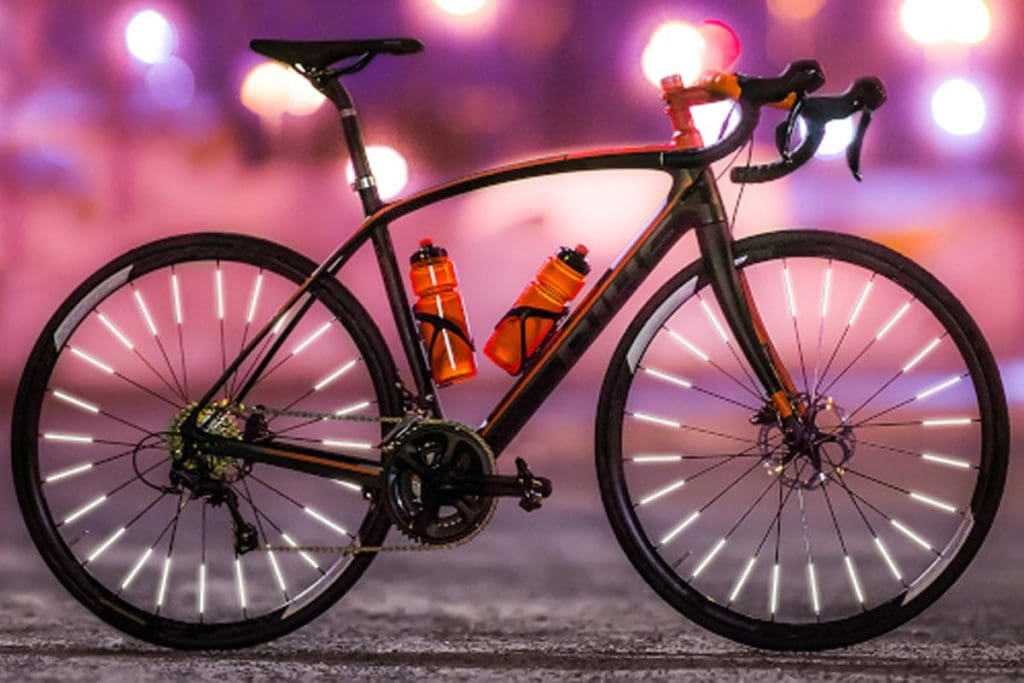
Büchel History
Lights and reflectors are a fair leap from Büchel’s origins, when brothers Hugo and Karl Büchel founded the company in 1920. The Versailles Peace Treaty had been signed the previous year, at the conclusion of World War I, and the brothers established their factory at Zella-Mehlis, in the newly created State of Thuringia.
The factory initially produced tuning forks and tool boxes but soon switched to bike parts: pedals, brakes and hubs.
Market forces, the outbreak of another World War and the subsequent creation of Russian territory prompted the company to shift its operations to various parts of Germany.
Büchel returned to Zella-Mehlis in the 1990s, after the Berlin Wall came down, and now has factories in five German cities, employing a total of nearly 400 people.
“The advent of automated production has been the latest game charger for Büchel, enabling much of its operations to return to Germany.”
The company has only had two generations of the Büchel family at its helm throughout the organisation’s 100-year history. Erhard assumed a leadership role at the age of just 23, when his father Hugo died.
When market forces pushed much of the world’s production to Asia, it was Erhard who made the call for Büchel to relocate manufacturing operations to Malaysia and then China.
It continued to supply many of Europe’s prominent brands but moved away from brakes and hubs, focusing instead on lights, mudguard, racks, rims, spokes, bags and other similar products.
The advent of automated production has been the latest game charger for Büchel, enabling much of its operations to return to Germany and giving the company more diverse options for its products.
Its plastic injection molding operations in Barchfeld started creating plastic covers for e-bike motors and batteries, as well as products for automotive companies such as Volkswagen.
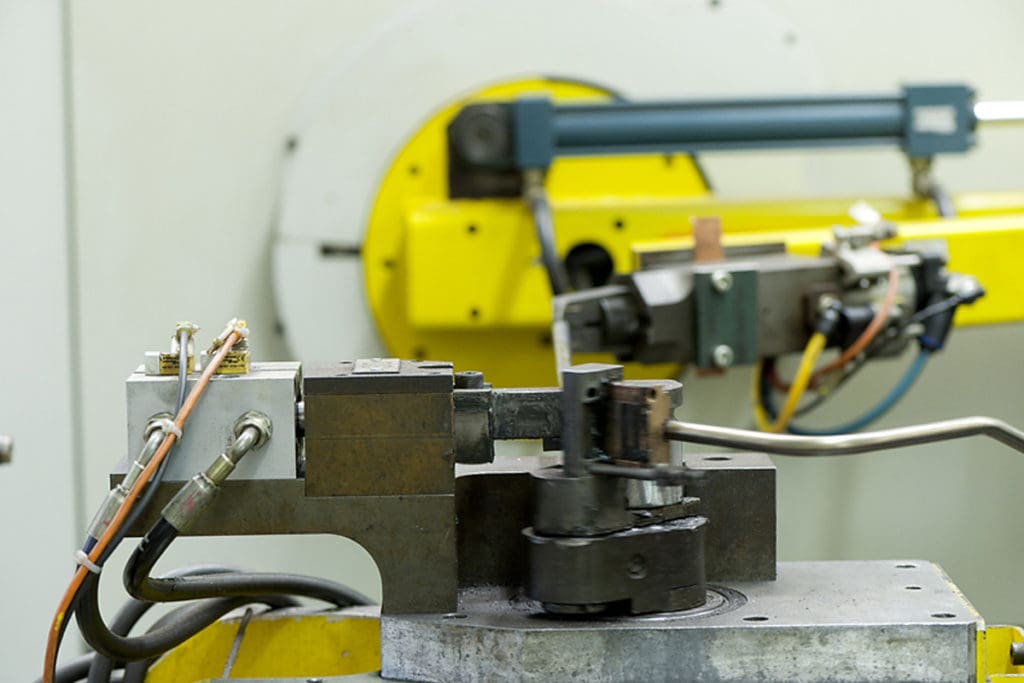
It is steadily diversifying its range of bike products and used Eurobike to reveal new saddles and handlebar grips created at the Barchfeld factory. The saddles and grips will be sold as Wittkop, a brand which dates back to 1898 and is highly regarded in Europe, once renowned for its handcrafted leather saddles.
Büchel bought Wittkop in 1987 to sit alongside its other saddle brand, Selle Esse.
“Wittkop will focus on commuting and trekking riders, as we identify opportunities with the automated production and create our own new designs,” Erhard said.
Similarly, its Wittkop Medicus grip series was born from bike manufacturers’ demands for German-made grips and the manufacturing potential of the Barchfeld plant.
Developed in conjunction with a leading German orthopaedist, the top-of-the-range models feature ergonomics and materials designed to minimise fatigue and numbness in a rider’s hands, even during long touring rides.
“They really fit nicely into the palm, relaxing the rider’s grip, while providing added surface area to support the hand and wrist,” he said.
“They also have a clever clamping mechanism which makes the grips easy to install and very secure once in place.”
The Medicus range will come in four models, from standard and sporting – for mountain, hybrid and urban bikes – to two high-end versions focused on trekking.
“Even the single-piece standard grips maintain high comfort courtesy of the rubber used and ridged design,” he added.
Anyone interested in finding out more about Büchel can visit its website or contact info@buechel-online.com.
